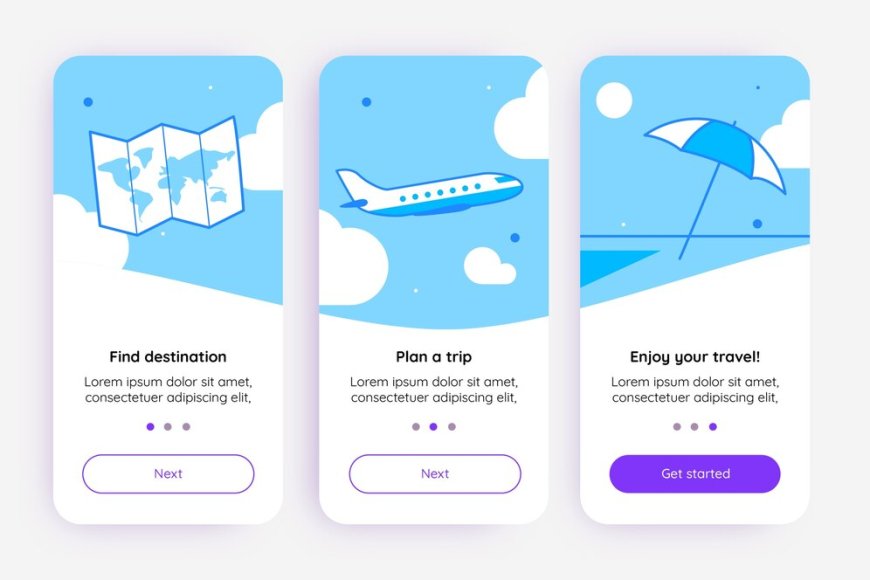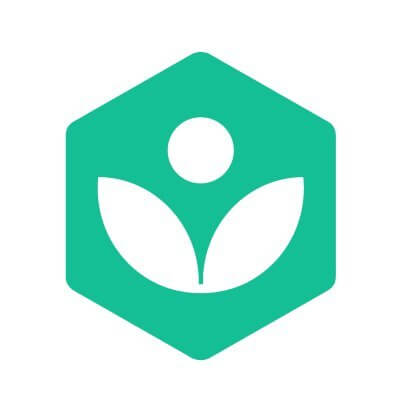Travel and Booking Apps: UX Best Practices

In an era where digital convenience governs our everyday decisions, travel and booking apps have become indispensable tools for millions. From planning holidays and booking hotels to managing itineraries and discovering local attractions, these mobile applications have revolutionized the travel experience. However, in an industry marked by fierce competition and high user expectations, delivering exceptional User Experience (UX) is no longer optional—it's essential.
This blog explores the UX best practices for travel and booking apps, while integrating the importance of mobile application development services, with a focus on Android application development services, iOS application development services, and the role of a web and app development company in bringing these ideas to life.
Why UX Matters in Travel and Booking Apps
Travelers today demand speed, simplicity, and personalization. A user may switch to a competitor’s app if they encounter friction in booking a flight or finding accommodations. With the market saturated with alternatives, the slightest UX flaw can result in a lost user.
According to Statista, global revenue in the online travel market is projected to reach $1.1 trillion by 2027. This massive growth underlines the need for well-designed mobile solutions that make travel easier, faster, and more enjoyable.
The takeaway: investing in UX-centric mobile application development services is a strategic necessity for every travel business.
UX Best Practices for Travel and Booking Apps
Here’s a deep dive into the most effective UX strategies for travel and booking applications.
1. Seamless Onboarding Process
First impressions matter. A complicated onboarding process can frustrate users and increase bounce rates.
Best Practices:
-
Allow social media or Gmail sign-ins to speed up the registration process.
-
Provide a skip option or guest mode to let users explore the app before signing up.
-
Use progress indicators and brief explanations for required steps.
A skilled web and app development company can design intuitive onboarding flows that reduce user drop-off.
2. Intuitive Search and Filters
Users often search for destinations, hotels, and flights with multiple preferences—date ranges, budgets, locations, and more.
Best Practices:
-
Offer smart search suggestions as the user types.
-
Integrate voice-based search for accessibility.
-
Implement dynamic filters based on user behavior and preferences.
-
Display results with real-time availability and pricing.
This is a key area where Android application development services and iOS application development services must optimize performance and speed to handle complex filters without lags.
3. Simplified Booking Flow
Once users find what they’re looking for, the booking process must be quick, simple, and error-free.
Best Practices:
-
Use a single-page checkout or step-by-step process with progress indicators.
-
Auto-fill user data from profiles or previous sessions.
-
Allow multiple payment options including wallets, cards, and UPI.
-
Provide clear cancellation and refund policies during the booking.
A reliable mobile application development services provider will ensure seamless integration with third-party APIs like payment gateways and booking engines.
4. Real-Time Notifications and Updates
Travelers depend on timely updates about bookings, delays, promotions, or changes in schedule.
Best Practices:
-
Use push notifications to alert users about booking confirmations, offers, and travel reminders.
-
Integrate in-app notifications for status updates, especially for bookings or check-in times.
-
Let users customize their notification preferences.
Working with a web and app development company that understands real-time architecture is crucial to implementing this successfully.
5. Geo-Location and Personalization
Personalization enhances engagement. Travelers prefer apps that offer localized suggestions or deals.
Best Practices:
-
Use GPS and location-based services to recommend nearby hotels, attractions, or restaurants.
-
Display customized offers and itineraries based on user travel history or preferences.
-
Enable language and currency localization depending on the user’s region.
Expert iOS application development services and Android application development services can help you tailor experiences with minimal resource drain.
6. Engaging and Informative UI Design
Design is a cornerstone of UX. A cluttered or outdated interface can deter users, even if the app performs well.
Best Practices:
-
Stick to minimalist design principles with consistent branding.
-
Use high-resolution images and icons to reflect destinations and accommodations.
-
Provide visual cues (color, animation) for actions like booking confirmation or errors.
-
Apply dark mode and high contrast modes for accessibility.
A reputable web and app development company will bring UX/UI designers into the process early to align design with user behavior.
7. In-App Support and Chatbots
Travel often comes with uncertainties. Users need instant support, especially during emergencies or booking issues.
Best Practices:
-
Offer 24/7 chatbot support powered by AI for quick resolutions.
-
Provide an in-app help center with FAQs, guides, and contact options.
-
Use voice or video call integration for direct support in complex situations.
By integrating AI-powered solutions, mobile application development services can significantly enhance customer satisfaction.
8. Offline Functionality
Travelers may not always have access to the internet, especially in remote areas.
Best Practices:
-
Allow users to download booking details, maps, and itineraries for offline use.
-
Offer offline check-in features for flights or hotel reservations.
-
Store cached data to allow access to search history or recent destinations.
This requires efficient data management by expert Android application development services or iOS application development services.
9. Ratings, Reviews, and Social Proof
Users trust other travelers. Ratings and reviews build credibility and help users make informed decisions.
Best Practices:
-
Display user-generated reviews and photos prominently.
-
Use verified booking badges to indicate genuine reviews.
-
Provide sorting options like most helpful or most recent reviews.
Social proof is more compelling when integrated with a sleek UX design provided by a professional web and app development company.
10. Loyalty and Reward Systems
A loyalty system not only enhances user retention but also boosts referrals.
Best Practices:
-
Offer reward points, badges, or discounts for regular usage.
-
Integrate with frequent flyer programs or hotel memberships.
-
Provide gamified challenges (e.g., “Book 3 trips this year, earn 10% off”).
Ensure the loyalty features are seamlessly integrated into the UX by experienced mobile application development services providers.
Additional UX Features That Add Value
-
Multi-language support: For global users.
-
Multi-currency support: Real-time currency converters help users abroad.
-
Calendar integration: Sync bookings with the user’s calendar app.
-
Weather and local alerts: Inform users about local climate or safety conditions.
-
Custom itineraries: Let users plan and visualize trips on a timeline.
These elements can be custom-built by a web and app development company that specializes in mobile app development for the travel industry.
The Role of a Web and App Development Company
Behind every successful travel app is a team of developers, designers, and strategists. A professional web and app development company plays a pivotal role in:
-
User research and persona building
-
Wireframing and prototyping
-
UI/UX design and user flow mapping
-
Back-end and API development
-
Android and iOS app development
-
Quality assurance and performance testing
-
Post-launch support and updates
By offering comprehensive mobile application development services, such companies ensure that every UX best practice is implemented efficiently.
Platform-Specific UX Considerations
For Android Application Development Services:
-
Follow Material Design guidelines.
-
Optimize for a wide range of devices and screen sizes.
-
Implement Google Pay and other Android-native features.
For iOS Application Development Services:
-
Adhere to Human Interface Guidelines (HIG).
-
Integrate with Apple Pay, Siri, and Calendar.
-
Ensure smooth performance across all iPhone and iPad models.
Using platform-specific standards ensures a seamless experience and maximum user satisfaction.
Case Studies: UX Success in Travel Apps
1. Airbnb
Airbnb uses vibrant visuals, easy-to-use filters, and a smooth booking process. Their consistent UX across Android and iOS has made them a leader in home-sharing.
2. Expedia
Expedia focuses on personalization and offers bundle deals. Their UX prioritizes ease of comparison and secure checkout.
3. TripIt
TripIt excels with offline capabilities and itinerary management. Their UX helps travelers stay organized with minimal effort.
Conclusion
In the competitive realm of travel and booking apps, UX is the true differentiator. By following best practices—ranging from seamless onboarding and intuitive search to real-time updates and personalized suggestions—brands can craft experiences that delight users and build loyalty.
Partnering with a seasoned web and app development company that offers mobile application development services, including specialized Android application development services and iOS application development services, ensures these best practices are not only implemented but optimized for growth.
Ready to build a travel app that users love? Work with a trusted mobile app development partner to elevate your UX and redefine the travel experience.





































































![https //g.co/recover for help [1-866-719-1006]](https://newsquo.com/uploads/images/202506/image_430x256_684949454da3e.jpg)

























![[PATREON EXCLUSIVE] The Power of No: How to Say It, Mean It, and Lead with It](https://tpgblog.com/wp-content/uploads/2025/06/just-say-no.jpg?#)





















































